Welcome one and all! As always, it is a joy to have you visit the Pink Crusader on a weekly basis. Unfortunately I'm still on the mend from Friday's procedure and will have to go a little easy on the hugs this week.
“When you dance with a gorilla it is the gorilla who decides when to stop."-Unknown
Thanks to all of you for the positive thoughts, prayers, e-mails and calls. Don't worry, it's just a little flesh wound and nothing that can't be fixed with a spoonful of sugar and some extra-strength Tylenol! The only thing worse than the discomfort is the boredom and restlessness! Quick....Someone throw me a distraction!
Next week, I'll have the latest update on "The Faces behind Breast Cancer" as well as the details regarding the Launch Party on August 26th. In the meantime, enjoy this bit of humor, compliments of my cousin Frank:
A wife invited some people to dinner.
At the table, she turned to their six-year-old daughter and said,
"Would you like to say the blessing?"
"I wouldn't know what to say," the girl replied .
"Just say what you hear Mommy say," the wife answered.
The daughter bowed her head and said,
"Lord, why on earth did I invite all these people to dinner?"
Personal Note:
Good Luck to Brenda (a.k.a. B. Kaye) as she returns to her ministry in the skies (as a flight attendent)following the successful completion of reconstructive surgery. She wanted to pass on the following: Hi All! Wow!! It's been about 4 months and a week since I've flown and I have to admit I'm a little anxious heading up!! LOL!! Sounds crazy, I know, but there have been some changes since I've been gone and I'm trying to wrap my brain around it all... not to mention I'm REALLY out of my routine and out of SHAPE!! LOL!! This walking across America is not for sissies!!... So, with that said, keep me in your prayers... it's Springtime and turbulent, and bumper guards are not yet a part of our uniform... we need helmets sometimes!! LOL!! To protect us against turbulence, AND some of the passengers!! LOL! As always, if you're out there bumping around in the friendly skies, keep an eye out for me, and if we're going to end up in the same little spot... give me a call. I'm on e-mail and cell... so KEEP IN TOUCH!! Thanks again for all of your much needed support in every way throughout my "Project". Love and Hugs!! Brenda K.
FYI:
Ask the Expert, Anderson Network's online message board, allows cancer patients and caregivers to submit questions to M. D. Anderson experts on specific topics. Log on to the board at www.mdanderson.org/asktheexpert to submit questions or to view past topics archived on the site. These include nutrition, lymphedema, clinical trials, fatigue, cancer prevention, patient safety, exercise and bone health, as well as site-specific questions and answers.
From Donna Fong:
Aromatherapy Helps Heal Cancer Patients by Cheri Perez, R.N.
Like so many New Age practices and beliefs, aromatherapy has ancient roots. The use of essential oils to affect mood and well-being can be found far back in Egyptian, Greek and Roman history. In fact, when the three kings of biblical fame brought gifts, including gold, to baby Jesus, their other highly prized offerings were frankincense and myrrh... resins from these herbs are still in use today. While scientific evidence about aromatherapy is scant, its long-standing role in spirituality and healing, along with strong anecdotal support of its benefits, gives essential oils an important role as a complementary alternative medicine therapy.
Cherie Perez, RN, quality assurance specialist in the department of GU Medical Oncology at M.D. Anderson Cancer Center in Houston, is a strong proponent of aromatherapy, including as an adjunct for cancer treatment. She teaches monthly classes for patients on the topic. I recently asked Perez to tell me about how aromatherapy can be useful for people who are healthy, as well as those with chronic illnesses. Used properly, Perez says essential oils can indirectly help bolster immune function in cancer patients, strengthening their ability to fight back against the disease by helping to ease pain, depression, sleeplessness and stress. The oils can also help relieve anxiety and improve memory, both frequent problems for people in cancer treatment. Furthermore, aromatherapy offers patients an opportunity to take time for themselves and enjoy a mental and emotional break from their world of medicines and doctors.
ESSENTIALS ABOUT ESSENTIAL OILS
These essential oils have various scents such as floral, minty, citrus and masculine -- and Perez advises using the ones you like best among the choices indicated for a specific treatment, since more than one oil may address the same problem. She explains that the limbic system, which the sense of smell triggers, is the emotional seat of the brain, which is the reason why people often respond strongly to certain scents -- positively or negatively. Lavender, for example, might bring back warm memories of a trip to Provence, or sour thoughts about a dour relative who wore it as a fragrance.
All oils are highly concentrated distillations of plant parts, including the flowers, leaves, branches and roots. Because they are so potent (hundreds of times more concentrated than the culinary fresh or dried herb or herbal teas, and therefore easy to overdose on) they should be used only under the supervision of a knowledgeable practitioner, such as a naturopathic physician, registered nurse, massage therapist, clinical herbalist or aromatherapist. Some of the most popular oils include rosemary, eucalyptus, lavender and chamomile. Essential oils can be inhaled (safest with a simple diffuser), enjoyed in your bath or massaged onto your skin (but never directly in their undiluted form... because they can cause a rash or burning sensation). Oils may come already diluted, and will say so on the ingredient label, but you can also dilute a pure oil yourself. Add three drops of an essential oil to a half tablespoon of scentless organic vegetable oil (such as sunflower or safflower) or to an unscented body lotion. People with sensitive skin should do a skin test before topical use. How much to dilute an oil depends on the type of oil and your skin's sensitivity. Thyme, for example, is quite irritating to some people, so it should be used more sparingly and with caution, whereas lavender is non-irritating to nearly everyone, says Perez. Citrus oils may cause sensitivity to sunlight, so avoid skin application if you are going to be in the sun. Because they're so pretty and fragrant and highly toxic if ingested, they should be kept where children cannot reach them.
MENU OF OPTIONS
Here's a list of popular oils that address some common problems, as well as those common among people in treatment for cancer...
Lavender. Great as a general relaxant, it also treats migraines and relieves stress. It is excellent for insomnia resulting from cancer treatment.
Rosemary. For muscle pain, low blood pressure (do not use if you have uncontrolled or high blood pressure) and cold feet and hands. Rosemary aids a loss of appetite.
Spearmint. Used to ease nausea and to help digestion. Also can help ease gas and other treatment-related digestive problems.
Eucalyptus or peppermint. For rubbing on sore muscles. Eucalyptus may also help joints, including arthritic ones. Eucalyptus may increase the absorption of certain cancer drugs that are applied topically, so use caution and try a patch test first, avoiding application to the same area as the cancer drug.
Pink grapefruit or juniper berry. Used with massage to encourage lymphatic drainage of toxins and waste. Pink grapefruit is one of Perez's favorites for cancer patients, as she believes it helps energize them and raise their spirits. This and all citrus-type oils should be avoided during chemo and radiation -- and should not be used until speaking with your doctor.
Lemongrass, tea tree and orange. Mix together into two cups of Epsom salts. Use five drops of each oil -- a total of 15 drops -- for a soothing bath (use one-half cup per bath).
Aromatherapy has become so popular that essential oils are now widely available, including in health food stores and supermarkets. However, Perez advises that it is far better to purchase them from a shop with a staff knowledgeable in aromatherapy. Oils should come in dark blue or brown glass containers, which prevent light or heat damage. Avoid bottles with rubber droppers -- the rubber breaks down and contaminates the oil. Finally, the label should feature both the common and the botanical name of the oil (for example, Peppermint/Mentha piperita).
If you would like to learn more about how to incorporate aromatherapy in your life, Perez recommends The Complete Book of Essential Oils & Aromatherapy, by Valerie Ann Worwood (New World Library), which she says is both thorough and easily understood. Again, as in the case with skin sensitivities, people with asthma or allergies need to avoid things that might trigger an attack -- for example, chamomile is in the ragweed family. People who want to try inhalation aromatherapy should use only a few drops (two to three) of essential oils in a basin of water or diffuser, or on a napkin. And -- always consult with your doctor before using aromatherapy or any complementary therapy.
Source(s): Article printed in Bottom Line's Daily Health News on May 8th. Add our address, DailyHealthNews@dhn.bottomlinesecrets.com,to your Address Book.
From Cheryl P. Donlin:
We've come too far to stop now!
Last week, advocates just like you flooded the Texas Senate with emails and demanded change in the way our state deals with cancer. I'm proud to say that they heard you, and the bills passed out of the Senate Finance Committee Friday night with a unanimous vote! Thank you for your help, but we're not done yet. I need you to do it again. Please send one last message to your State Senator to make sure the Senate passes this bill with equal support this week.
This critical legislation will allow Texas to invest three billion dollars over the next ten years for cutting edge cancer research and programs. The bills are now on their way to the floor of the Senate and you have one more opportunity to tell your elected officials how you feel about this legislation. Most importantly, share your story with them; tell them why investing in cancer prevention and research means so much to you. Send a message to your State Senator TODAY.
I was at the Senate Finance Committee meeting late Friday night to testify to make sure that the voices of survivors were heard. You can find a link to my testimony at the May 19 Senate Finance Committee here. (The committee meeting was an hour and a half, if you fast forward to 40 minutes you'll see my testimony)
I talked about how we're not doing enough to battle cancer, we've come a long way, but we're not there yet. The system is broken, and we have a unique opportunity to fix it here in our own state. We have a chance to make Texas a global leader in fighting cancer.
I really feel that the fight against cancer is at a tipping point in Texas. The first step is to get this passed out of the Senate and signed by the Governor. Then we have to make our case to the people of Texas. I'm in this for the long haul, I'm ready for the fight and I hope you'll join me. If you haven't yet, send a message to your State Senator.
LIVESTRONG, Lance Armstrong
LIVESTRONG Army
PS. Please pass this message on to anyone you know in Texas. If there was ever a time to act, it's now – the Senate vote is scheduled for early this week.
Mammogram rate falls for first timeBy ROB STEIN
WASHINGTON — After rising steadily for decades, the proportion of U.S.
women getting mammograms to screen for breast cancer has dropped for
the first time, federal researchers are reporting today.
The overall rate at which women are undergoing regular mammograms fell
4 percent between 2000 and 2005, marking the first significant decline
since use of the breast X-rays started expanding rapidly in 1987, the
study by the National Cancer Institute and Centers for Disease Control
and Prevention found.
The reasons remain unclear, but researchers speculated that it could be
due to factors such as increasingly long waiting times to get
appointments, waning fears about breast cancer, the drop in hormone use
after menopause, and the ongoing debate over the benefits and risks of
the breast exams.
Regardless of the cause, the trend is worrying breast cancer experts,
who credit mammograms with playing a crucial role in reducing the death
toll from breast cancer, the second leading cause of cancer and cancer
death among U.S. women.
"This is very troubling," said Nancy Breen, who led the analysis
published online Monday by the American Cancer Society's journal
Cancer. "If women are not getting mammograms, then their cancer may not
be diagnosed until later stages, which could translate into higher
mortality from breast cancer."
Breast cancer strikes more than 200,000 women each year and kills more
than 40,000. But the odds of surviving have been rising, in part
because more women are being diagnosed by mammograms at the earliest,
most treatable stages. Breast cancer experts have been growing
increasingly concerned, however, by reports that mammography rates had
plateaued and perhaps started to fall. The new research is the first to
document the trend nationally.
"We've been anxious to look at a national sample," Breen said. "This is
the first time we had a data set to examine that represents the entire
United States."
Breen and her colleagues analyzed data collected by the National Health
Interview Survey, an ongoing survey of about 40,000 adults conducted by
the National Center for Health Statistics to track health trends.
Data from about 10,000 women surveyed showed that the mammogram rate
plateaued in 2000, began to fall in 2003 and continued to decline
through 2005, the survey's most recent year. Overall, the proportion of
women who said they had gotten a mammogram in the last two years
declined from 70 percent in 2000 to 66 percent in 2005, according to
the paper that will be published in the June 15 issue of the journal.
Most alarming, the drop was greatest — 6.8 percent — among women ages
50 to 64, the age group most likely to benefit.
This is also the group most likely to take hormones after the onset of
menopause, a practice that fell dramatically in 2002 after a federal
study found that hormone therapy raised the risk of breast cancer,
heart attack and stroke.
Breen and her colleagues were also surprised that the drop was
especially steep — 6.3 percent — among more affluent women.
"One possibility is women who stop using HRT (hormone replacement
therapy) believe their risk of breast cancer has declined and so they
don't feel the need for mammography," Breen said. "Another possibility
is they may not be going to their doctors as often for their hormones
and so are not being told it's time for a mammogram. That's a concern
because just because they are not taking HRT does not mean they are not
at risk."
Another possible explanation is that a worsening shortage of
mammography facilities is making it more frustrating to get an
appointment.
Breen and others speculated that some of the drop might be due to the
ongoing debate over the benefits of mammography. Some experts question
the blanket recommendation that all women routinely undergo mammograms
starting at age 40, saying the risks of unnecessary treatment and
anxiety from false alarms might outweigh the benefits for some women at
low risk.
"Some women are beginning to balance the risks and the benefits," said
Carolina Hinestrosa of the National Breast Cancer Coalition, an
advocacy group. "If women are making a careful determination and an
informed decision after weighing the risks and benefits, I don't
necessarily think that's a bad thing."
But others argued that the benefits have been well-established,
particularly for women over age 50. Even though other methods, such as
MRIs, are showing promise, mammograms remain the only widespread
screening method proven to pay off.
"Too many women and clinicians are misunderstanding the 'controversy'
about mammography," said Constance Lehman, a professor of radiology at
the University of Washington. "A mammogram is the best thing a woman
can do to reduce her chances of dying from breast cancer."
Another possible explanation is that rising survival rates among breast
cancer patients are making women more complacent.
"Women may also be feeling, 'Well, the death rates are dropping in the
population so I don't need to get screened,' " Breen said. "That's kind
of missing the point. One reason death rates are dropping is because
screening rates were so high." Brought to you by the HoustonChronicle.com
http://www.chron.com/disp/story.mpl/headline/nation/4800639.html
DAILY REMINDER:
"Fund Free Mammograms"
Go to The Breast Cancer Site at http://www.thebreastcancersite.com/tpc/EEB_0115_BCSm
and help fund free mammograms for the homeless, working-poor, and un-insured women. It costs nothing to you, except one daily click on the pink "Fund Free Mammograms" button. You can even request automatic reminders via e-mail. Please make your free click now, and thanks for your continuing support! The Breast Cancer Site, One Union Square, 600 University Street, Suite 1000, Seattle, WA 98101
Phone: 1-888-811-5271
UPCOMING EVENTS: Mark Your Calendars and Save the Dates!
Anderson Network Telephone Support Line Workshop & Recognition
Tuesday, May 22, 2007
M. D. Anderson Cancer Center
Cancer Prevention Center, 8th Floor, Room 5
10:30 a.m. – 1:00 p.m.
Self parking in Mays/ACB garage will be validated, valet will not be validated)
Guest Speaker: Tena Gardiner, LCSW Social Work
Appreciation Buffet Lunch Roundtable Scenarios
*Workshop materials will be sent to those volunteers unable to attend*
Please RSVP to Laura Hearn if you are able to attend at 713-745-9204 or lhearn@mdanderson.org
Rosebuds II Meetings
(For those who have had or are at high risk
for recurrence and/or metastasis)
2nd and 4th Thursday of each month 5:45 - 7:30 p.m.
MAY 24, JUNE 14 & 28
www.RosebudsSupport.org
CanCare Survivors Day Luncheon
Date: Thursday, May 31, 2007
For More Info: patwh@cancare.org
As most of you know our Survivors Day Luncheon will be held on Thursday, May 31 at the Intercontinental Hotel. Our luncheon event is a wonderful way to honor friends, family and employees who are cancer survivors and the medical communities who treat them. Our keynote speaker is Scott Hamilton, who is considered to be the world's most celebrated figure skater. In addition to being a role model and humanitarian, Mr. Hamilton is also a ten-year testicular cancer survivor.
Rosebuds Meetings
Open to all Breast Cancer Patients/Survivors
1st and 3rd Tuesday of each month 5:45 - 7:30 p.m.
JUNE 5 & 19
The Alice Thomsen Lymphedema Awareness Group of Houston
Meetings are scheduled on the 3rd Tuesday of every other month at the American cancer Society Building,6301 Richmond (between Hillcroft and Fountainview) at 7:00pm. The 2007 dates are July 17th, September 18 and November 20th.
For further information call 281-546-6438.
2007 Komen Survivor Party
August 22, at The Houstonian
Details to be announced in future posts.
"The Faces behind Breast Cancer" Launch Party
Save the date, Sunday August 26, at 1:00 pm.
Details will be announced in next week's post.
Living Fully
M.D. Anderson Annual Conference
September 6-8 2007
Marriott Westchase - Houston, Texas
Additional information to be announced.
Tour De Pink 2007
Pink Ribbons Project
September 9, 2007
at Prairie View A&M University
www.tourdepink.org
Additional info in future posts.
2007 Breast Health Summit
"SAVE THE DATE" for the 2007 Breast Health Summit to be held on October 18, 2007 at the United Way in Houston. Please pass this information on to others who may be interested. Additional information will be sent out later by both e-mail and postal mail. And of course, if your mailing address has changed, please be sure to forward the updated information to me. I look forward to seeing you in October!
Pat Dames
The Rose-
12700 North Featherwood
Houston, TX 77034
281-464-5150
Fax 281-484-7083
pdames@the-rose.org
www.the-rose.org
"Sharing is Caring"
As always, The Pink Crusader welcomes your comments, stories, poems, and events. Posts are updated every Sunday. Please send your written contributions to thepinkcrusader1@aol.com.
Coming next week: Update on "The Faces behind Breast Cancer" and details on the Launch Party.
"Success is not final, failure is not fatal: it is the courage to continue that counts."-Winston Churchill


Until then, stay strong, stay well and keep on dancing in your dreams.
Love, Josie
The Pink Crusader
thepinkcrusader1@aol.com
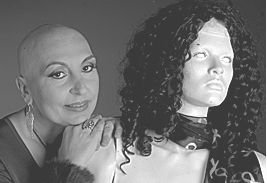

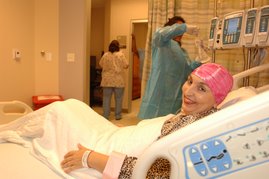
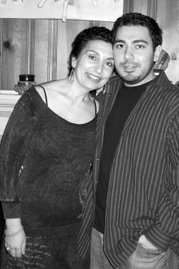

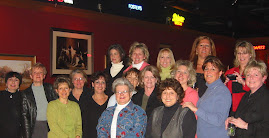







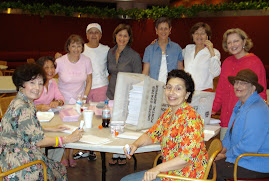














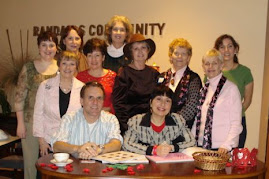


10 comments:
How r you? We were wondering and hope your feeling better? Hope everything is o.k.? Well just us 2 in ohio caring about you! La ya, Diane & Ed
Hi Josie,
Your surgery was an out patient procedure I imagine, as you are already on your computer. Glad it went well - just do not overdo! Blessings,
Rosemary
Love you Sweet Lady,
Brenda Hoffman
Dear Cancer Girl,
Bubbles is glad to hear you are doing OK. So, you mentioned Aug. 26th is a party.....oooh bubbles adores party..I will be there with pink bells on. Tell all cancerettes to unite and to mark their calendar for the big bash of the year. Peace, love and grooving to my own beat. Messed up and loving every minute of it.
The bubblemeister
You're special just because you're you. You've made a difference in my life. Remembering all the things that make our friendship special...Mary
Hello!
I'm going to head home & enjoy some of this beautiful weather outdoors!!!
How are you & all your body parts!? What's the latest on the book, etc?
...you're never far from my thoughts & prayers!
Love, Gloria
Dear Josie,
One month from tomorrow we will be dancing at the wedding!!!! Can't wait to see you.
Love & kisses
Mimi
Hi Josie,
I am a friend of your brother Joe.
I was diagnosed in June of 2005.
It has been quite a journey. I ask
about you often. I have a few funny stories to tell. I am from Ohio as well and knew Joe when he owned the coffee shop. I probably met you a time or two. I now live in Florida. Would love to hear from you and swap stories.
Sue Vega
Are you able to do backwards flips yet??? ; ) How are you? I'm hoping you're being pampered and spoiled rotten!!
Brenda Hoffman
The world is a theatre of love.
-Kashmiri Proverb
LOTS OF LOVE !
SANDY
Post a Comment